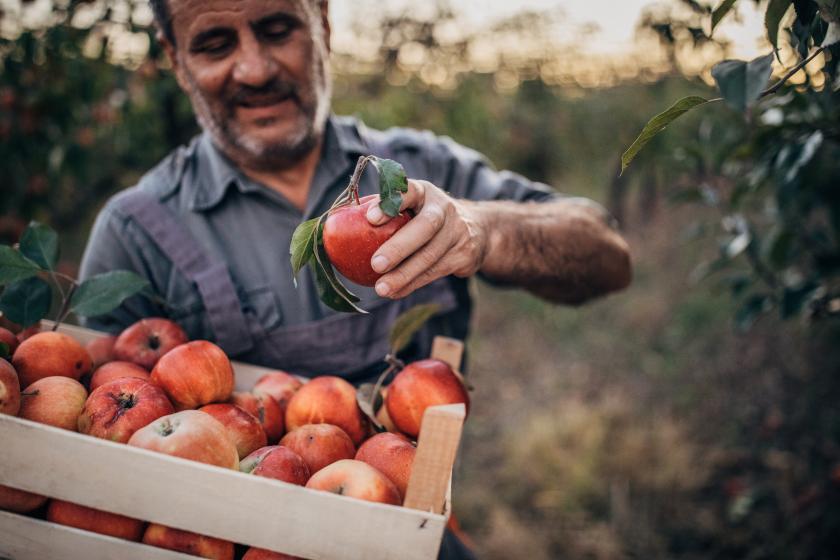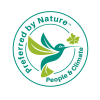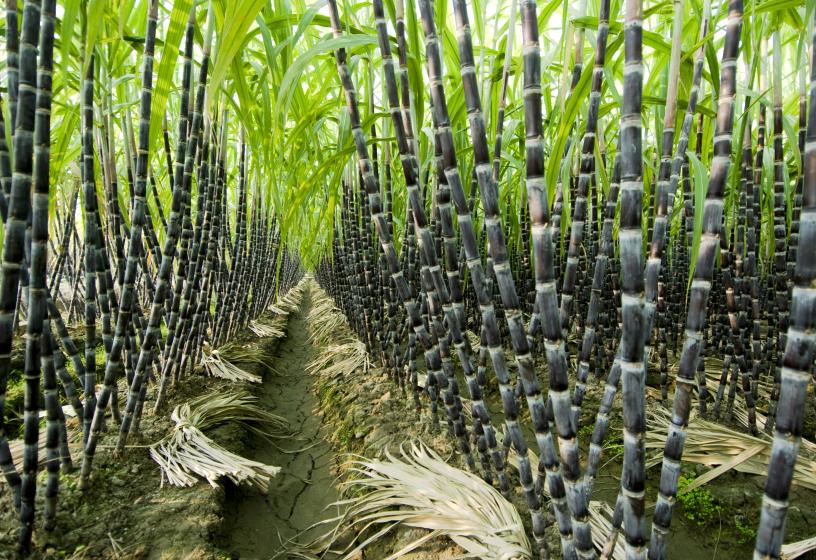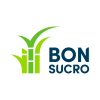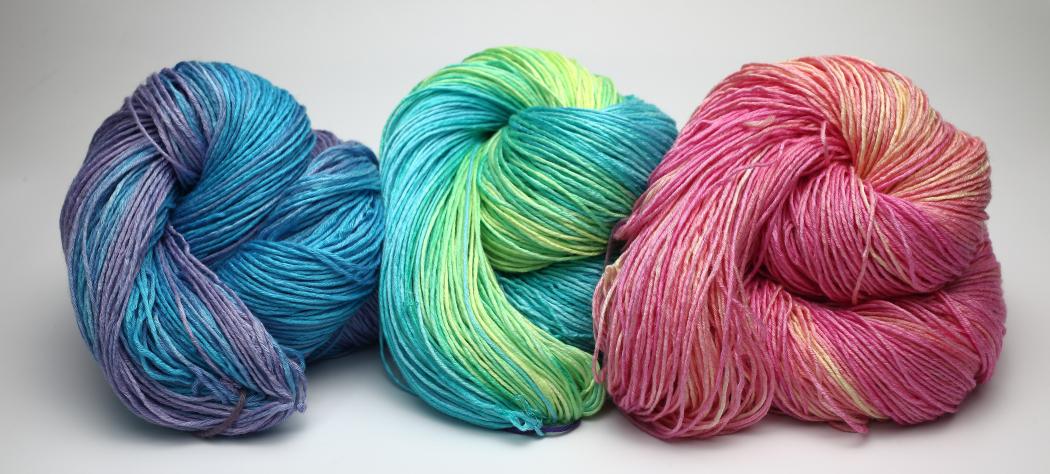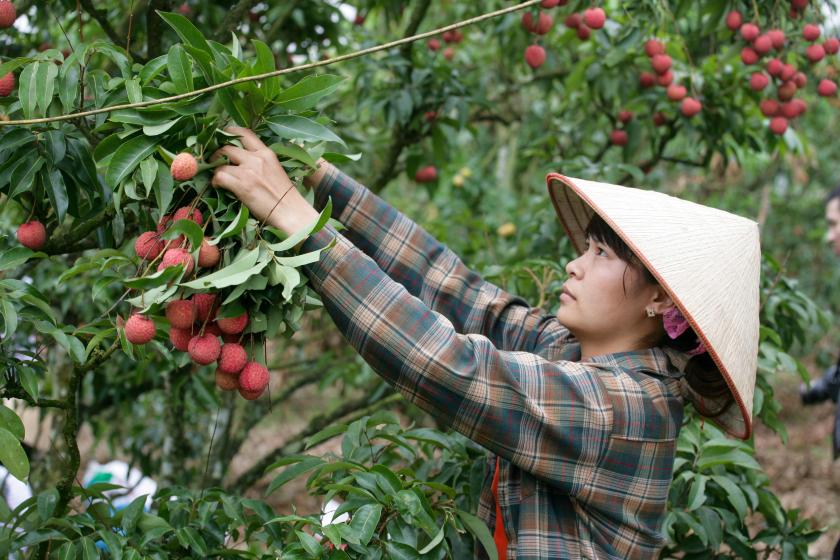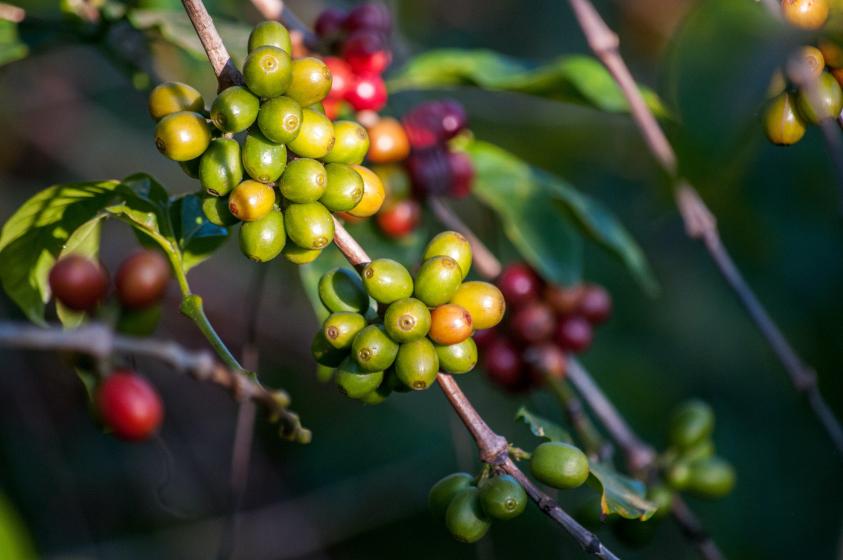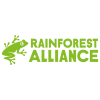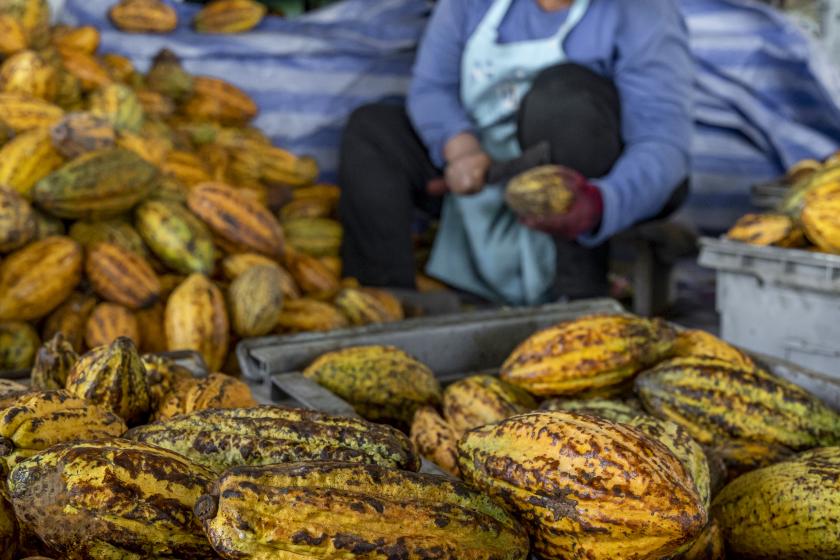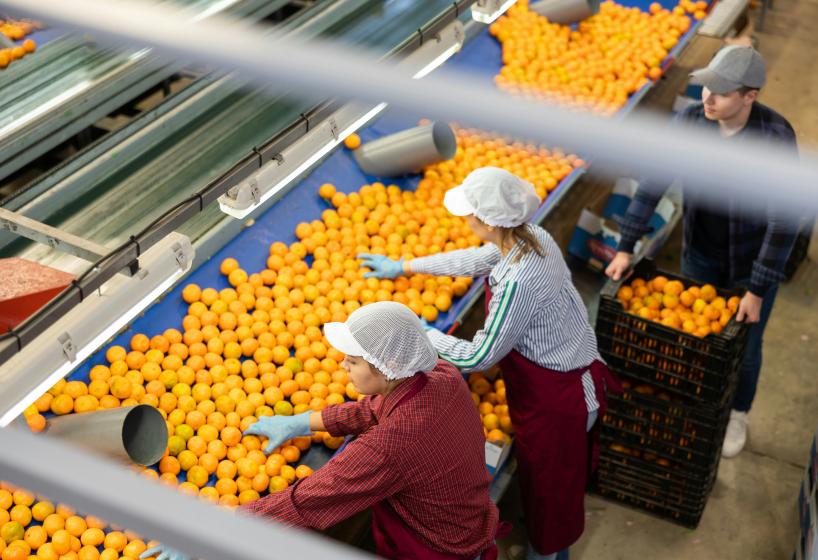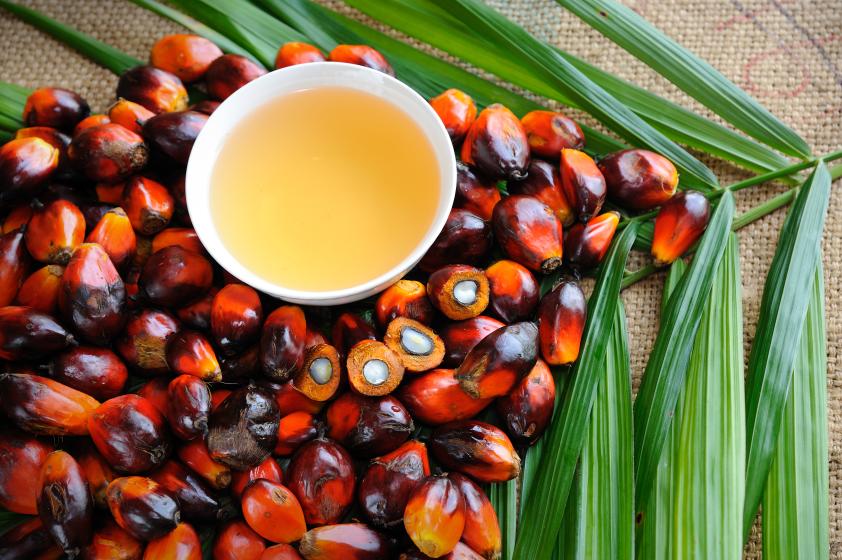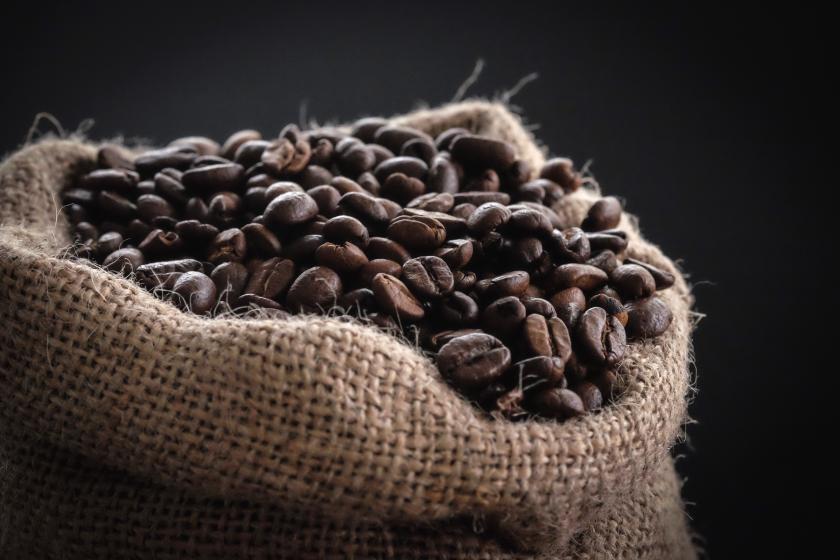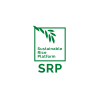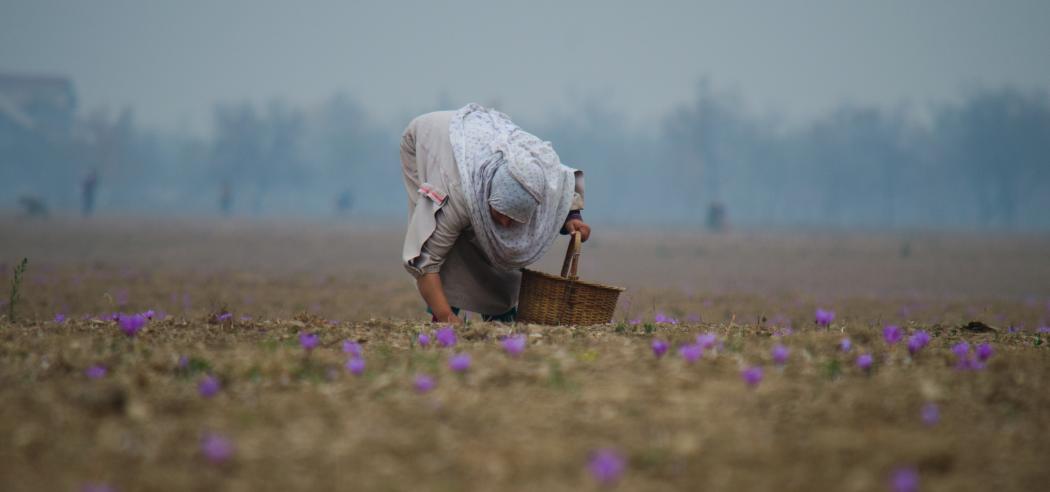What is the Sustainable Rice Platform?
Rice, a staple food for over 3.5 billion people, supports the livelihoods of 1 billion, however, it also poses environmental challenges. Its production generates greenhouse gas emissions comparable to global aviation, with additional pollution from burning rice straw.
The Sustainable Rice Platform (SRP) is a global multi-stakeholder alliance established in December 2011. It is co-convened by the UN Environment, International Rice Research Institute (IRRI) and the Deutsche Gesellschaft für Internationale Zusammenarbeit GmbH (GIZ) to promote resource efficiency and sustainability in trade flows, production and consumption operations, and supply chains in the global rice sector.
The SRP has sectors and institutional members from the public, private, research, civil society, and financial sectors, and is supported by numerous non-governmental organisations (NGOs). You can find the full list of members here.
SRP works with partners to transform the global rice sector by improving smallholder livelihoods in developing countries, reducing the social, environmental and climate footprint of rice production; and by offering the global rice market an assured supply of sustainably produced rice. In 2023, SRP marked a significant growth in interest and visibility in the global arena. Covering 45,800 hectares, SRP-verified products are now available in more than 20 countries in Europe as well as countries outside of Europe such as Singapore and the USA.
Preferred by Nature is the first verification body to receive a licence under the new verification scheme, the Sustainable Rice Platform to verify farms across the world.
>> Learn more at the SRP website
>> Download our info sheet
Five reasons to choose SRP
- Public trust. SRP-verified ecolabel is backed by the United Nations. Carrying the SRP-verified label on your rice-based products can help assure consumers of your responsible sourcing practices.
- Enhanced access to new markets and customers. With sustainability as a central part of many business strategies and growing eco-friendly trends, you will be able to expand your reach. As one of the newest ecolabels introduced to the market, obtaining an SRP-verified label for your product will help position your brand as an active player to help transform the global rice sector.
- Improved supply chain transparency. The SRP Standard and Assurance Scheme allows farmer groups to connect with buyers seeking sustainably produced rice with value chain transparency.
- Driving sustainable rice supply chains. You can demonstrate your commitment to rice sustainability by participating in a system that empowers rice-growing communities and their transition towards sustainability.
- Embracing continuous improvement. As SRP's social criteria for all actors in the rice value chain cover child labour, forced labour, worker health, freedom of association and fair wages, choosing SRP assures traceability for continuous improvement.
The platform offers the global rice supply chain a set of instruments to facilitate the wide-scale adoption of sustainable best practices in the global rice sector. These instruments are:
- SRP Standard for Sustainable Rice Cultivation
- SRP Performance Indicators for Sustainable Rice Cultivation
- SRP Internal Management System (IMS) Standard
- SRP Assurance Scheme
- SRP Chain of Custody (CoC) Policy and Standard
You will find other documents available on the SRP Resources section.
How is the verification process?
Kickstart your verification journey by following the steps below. Have a question? Reach out to us directly. Our experts will guide you through the certification scope that aligns best with your company setup and needs.
Step 1: Application process
The SRP CoC verification process begins when you submit an application form to us, which will help us identify the relevant scope of your audit (type, budget and duration). This information is recorded in the SRP and our database and updated based on any changes.For multi-sites, a member list must be uploaded at the time of report finalisation each year, when changes occur. Once you have accepted our proposal, we will assign a Preferred by Nature contact person for your organisation.
Step 2: Audit preparation
We will provide an audit plan at least five days before the on-site or desk audit, except for research audits. The objective of the audit plan is to describe all activities covered by the audit process, as well as the documents that will need to be reviewed during the audit.Step 3: Audit execution
A review of documentation is conducted along with on-site audit visits. The audit usually involves a visit to one or several of your company sites. The audit team shall record all non-conformities and consolidated evidence in the audit report to ensure that all CoC standard criteria are audited and to facilitate the recounting of evidence during the closing meeting.Step 4: Audit report and review
The report describes the audit results, and it is reviewed by a Preferred by Nature internal quality reviewer. Following completion of the review process, we will take the verification decision and register the decision in the database. SRP may stipulate shorter timelines in cases of research audits for high-risk cases.Step 5: Verification decision and issuing verification statement
The verification can only be issued once the organisation has successfully passed a verification audit, or corrective verification audit (CVA) after failing a verification audit. All verification statements are valid for 36 months from the date of the verification decision.
Chain of Custody audit scope
The SRP Chain of Custody (CoC) requirements shall apply to any organisation in the supply chain that physically handles SRP-verified rice products at a location under the control of the organisation, including outsourced contractors.
Any company, association, factory, processing unit or other entity that applies for SRP CoC verification, shall be referred to as a participating operator (PO). The CoC cycle of SRP is three years.
POs are divided into two categories in the context of the SRP CoC system:
- Single participating operator: An entity that administers only one production and/or processing facility but may administer one or more offices. The CoC verification statement is issued for a single PO.
- Multi-site participating operator: An entity that administers two or more sites.
Outsourced contractors
If a PO outsources activities to independent third parties, we will conduct a risk assessment to determine whether an audit of the outsourced contractors is required. In the case where the outsourced contractor holds the SRP CoC verification, this is categorised as low risk and the outsourcing contractor audit is, therefore, not required.
Outsourced contractors that are not SRP-verified will be considered high risk if they are engaged in physically transforming products or if there is risk of uncontrolled, non-deliberate or accidental cross-contamination resulting in mixing verified and non-verified products. Outsourced contractors can be categorised as 'Single participating operator' or 'Multi-site participating operator'.
Expansion of multi-site participating operator scope
At any time in the audit cycle and as long as the effectiveness of the audit is guaranteed, a PO may request a change to the verification scope to increase or decrease the number of sites. For a multi-site PO to increase its number of sites, this must be communicated to us, as the verification body, regarding each site it wishes to include.
Any new facilities involved in manufacturing, packaging, or labelling must be approved by Preferred by Nature before they can be included within the scope of the SRP CoC system. This may require an on-site audit or a desk review, depending on the complexity and the risk associated with the site as a result of the PO’s risk assessment.
Resources:
Use these SRP standards and guides to stay up to speed and in preparing for SRP verification assessments. You can also share them with your stakeholders and employees.
SRP-verified rice
The Sustainable Rice Platform Standard and Assurance Scheme verify rice farming and handle a broad range of sustainability issues including critical areas related to greenhouse gas emission and air pollution. The aim is to increase the global supply of rice while improving the livelihoods of rice producers and reducing the environmental impact of rice production.
The standard offers a broadly agreed working definition of sustainable best practice and provides a scientific basis to offer supply chain actors a robust, cost-effective and transparent assurance scheme. It is suitable for individual farmers, smallholder farmer groups, as well as larger farms. The standard has a strong focus on ensuring relevance, practicality, and impact, especially for smallholder farmers in developing countries.
If applied by a smallholder farmer group, the standard requires an internal management system (IMS) to support farmers in implementing the standard, measuring results, and identifying actions for continuous improvement.
Verification for farm-level rice cultivation
The SRP Standard for Sustainable Rice Cultivation is the world’s first voluntary sustainability standard used for rice production. The standard applies to all farm-level processes in rice cultivation.
The standard is complemented by a set of 12 quantitative performance indicators used to monitor the impacts of adopting climate-smart best practices and other field interventions such as training.
The SRP standard and indicators provide an objective ‘working definition’ of sustainability that can serve as a normative basis for monitoring and evaluation, policymaking, and a benchmark for supply chain assurance schemes.
Four benefits of choosing SRP-verified rice:
- Build capacity. By opting SRP cultivation practices farmers can improve their adaptive capacities in rice production to better meet the growing demand for rice.
- Enhanced livelihoods. SRP is a holistic system to meet the demand for rice sustainably. It can support smallholders and rice producers to improve their livelihoods and food security by incentivising the adoption of sustainable best practices.
- Enhanced access to new markets and customers. Farmers will benefit from the SRP Standard and Assurance Scheme as switching to SRP practices can boost production and net incomes by 10% to 20%.
- Doing the right thing for the environment. Smallholder farmers will benefit from exposure to sustainable farming practices and climate-smart agriculture technologies. Adopting SRP practices can reduce emissions of methane - a potent greenhouse gas - from flooded rice fields by up to 50%.
SRP Standard on Sustainable Rice Cultivation
The Standard applies to all farm-level processes in rice production, including postharvest processes under the farmer’s control. The Standard can be applied by individual farmers, smallholder farmer groups, as well as larger farms, and focus on ensuring relevance, practicality and impact, especially for smallholder farmers in developing countries.
The SRP standard consists of 46 requirements structured under eight (8) themes, each aimed at achieving a specific sustainability impact. It is designed for farm-level impact at the smallholder level. Each requirement is relevant, practical, and under the farmer’s control.
Access the standard here: SRP Standard for Sustainable Rice Cultivation

SRP Chain of Custody Verification Standard
Demonstrate your support for sustainable rice farming and enter the market for responsibly produced rice.
The SRP Chain of Custody (CoC) Standard applies to any participating operator purchasing, handling and/or trading SRP-verified rice. This includes individuals, companies or organisations which have ownership and/or control of rice – from their origin to their market availability.
This core standard specifies requirements for all Chain of Custody-verified and applicant organisations with respect to sourcing, processing, labelling and sale of rice-based products as SRP-verified.
The SRP CoC Standard is intended to be used in conjunction with the SRP standard, Assurance Scheme and Performance Indicators to enable market actors to make verifiable sustainability claims for rice produced using proven, climate‐smart, sustainable best practices.
All organisations in the supply chain – from farmers to the entity implementing final packaging of products carrying an SRP claim – shall be covered by the SRP CoC verification system, to be managed by an SRP-approved CoC verification body.
As an SRP-approved CoC verification body, Preferred by Nature is currently working in most key rice-producing countries around the world, and we can provide you with the SRP CoC verification.
Access the Standars here:
- SRP Standard for Sustainable Rice Cultivation
- SRP Performance Indicators for Sustainable Rice Cultivation
- SRP Internal Management System (IMS) Standard
- SRP Assurance Scheme
- SRP Chain of Custody (CoC) Policy and Standard
Info sheet

Sustainable Rice Platform Info Sheet
Explore the requirements, standards and certification of the Sustainable Rice Platform.
Explore the requirements, standards and certification of the Sustainable Rice Platform.
Guideline
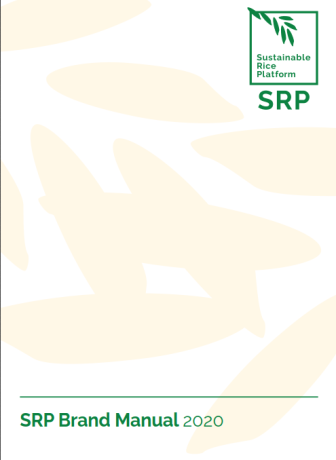
SRP Brand Manual
This Brand Manual sets out principles and policies to uphold brand value, and provides branding guidance for use of the SRP Organisational logo and SRP-Verified Label, including t...
This Brand Manual sets out principles and policies to uphold brand value, and provides branding guidance for use of the SRP Organisational logo and SRP-Verified Label, including t...
Standards

SRP Standard for Sustainable Rice Cultivation Version 2.2
This document offers a normative framework that can serve as a basis for supporting claims to sustainability performance in rice supply chains.
This document offers a normative framework that can serve as a basis for supporting claims to sustainability performance in rice supply chains.

SRP Assurance Scheme Version 2.0
The SRP Assurance Scheme is based on the SRP Standard and Performance Indicators in order to underpin verifiable sustainability claims for rice produced using proven, climate-smar...
The SRP Assurance Scheme is based on the SRP Standard and Performance Indicators in order to underpin verifiable sustainability claims for rice produced using proven, climate-smar...

Sustainable Rice Platform Chain of Custody (CoC) Policy and Standard 2.4
This document has been revised from SRP CoC Policy and Standard v2.2 into version 2.3, aligning with SRP Assurance Scheme 2.0 in terms of system, definitions and terminology. The ...
This document has been revised from SRP CoC Policy and Standard v2.2 into version 2.3, aligning with SRP Assurance Scheme 2.0 in terms of system, definitions and terminology. The ...
Get in contact with us
Our experts are ready to support you on your sustainability journey.
